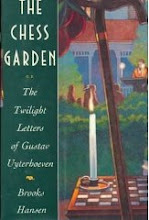I have to confess, I’m a little embarrassed that my first entry under what I hope to be this blog’s most recurrent category, musical suggestions, turned out to have been such an obvious one. Shostakovich’s Seventh is a great symphony, granted, and the Bernstein/Chicago rendition is tremendous. Still, recommending it to a potentially interested listener out there is a little like recommending Gone With the Wind to a cinephile.
So, just to establish a little more steet cred, let me for my second recommendation suggest a recording that’s a little farther from the beaten path.
Yekaterina Ervy-Novistkaya was 18 years old when she recorded most of the selections on this LP in that most blessed of years, 1969. A devoted Prokofievian, this US debut featured are Sarcasms (which I’ve never really gotten), the Fifth Sonata (the second movement of which is kind of a must-listen), Fugitive Visions (an all-time fav), and the piano transcription of ten selections from Romeo and Juliet.
As far as I can tell, this is Ms. Novitskaya’s only solo recording. In a moment of far-flung procrastination a while back, I think I tracked down the fact that she married and moved to Belgium, where she is still teaching. Whether the brevity of her recording and performing career is a function of illness, bad luck, stage fright, or domestic obligation, I just don’t know. Whatever the cause, it is, like the death of Jeff Buckley, a point of intensely selfish regret to me personally, I consider this recording to be such a glittering (if sharp) gem. Fair to say, based upon the performances in this recording, I would listen to this woman play anything, anytime, anywhere.
That said, there is no quintessential performance on the record. For the Fugitive Visions, I would still have to give the nod to Richter. For the Romeo and Juliet, I’m not sure there is a #1 piano version just yet, and the same as with Glenn Gould, everything Ervy-Novitskaya plays should probably be heard as played by someone else, just for context. Her decision are not all agreeable. As with Gould, the virtue of the recording resides in the fact that she is such a distinctive player, and CLEAR. Spiky is a word that comes to mind. If she uses the pedal at all, I’m not aware of it. This is distinctly percussive playing for a distinctly percussive (piano) composer, but hers is a very heavy, sonorous finger as well. She hits harder and more emphatically than Prokofiev himself, whose playing can be heard on Pearl issue I am going to recommend just as emphatically. Most of the pieces on the Pearl LP were recorded in 1935. The sound is not good – a version of the third piano concerto, played by the composer and conducted by Piero Coppola, is unfortaunately distant (and a little hasty in parts), but the solo material burns through the mist more than clearly enough to substantiate what was often said about Prokofiev’s pianism, which is that for such a radical and brash composer, he was remarkably restrained player, one willing to the notes do the talking. The playing on his recording is all very respectful, subtle, at no point showy.
Ervy-Novitskaya is not exactly showy either. She clearly means to be a humble servant to the material, but her playing does call attention to itself, again, just because her sound is so distinct: emphatic, clear, very serious and ironic at the same time. Even so, and even though her decisions does not quite match Prokofiev’s, and even though he was famously cruel to players who took liberties with his scores or who seemed to have misunderstood his purpose, one gets the sense that he would have found Ervy-Novitskaya’s playing deeply, deeply pleasurable and affirming of his gifts. As idiosyncratic as it may be, she gets at an aspect of his music more directly than any other player I’ve heard, including Richter, and including Prokofiev himself.
For highlights, let me suggest the second movement of the fifth sonata, and just about all of Romeo and Juliet (with the possible exception, sadly, of the Knight Dance, which I’m ready conclude just doesn’t translate well to the keyboard). There’s a moment right at the end, though, track 38, as the bodies of the two young lovers are being taken away, the music is fading beautifully, drifting (yet marching) away, when out of nowhere, eleven rapid-fire chimes sound. In Ervy-Novitskaya's hands, a chilling, evanescent appearance of the devil himself.
For that, and countless other moments contained in this LP, my thanks to you Ms. Ervy-Novitskaya. If you are out there, if you have ever been tempted to reenter the fray, send up a flare, I will be first in line.
skip to main |
skip to sidebar

__

- Brooks Hansen
- Brooks Hansen is a critically acclaimed author of a dozen books, including four New York Times Notables, two books for Young Readers (which he also illustrated) and one memoir. His novel The Chess Garden was selected as a PW Book of the Year in 1995. He received a Guggenheim fellowship in 2005 for his quasi-history of John the Baptist, and his 2021 title, The Unknown Woman of the Seine, was a New York Times pick for best historical fiction of 2021. Born and raised in New York City, he currently teaches at Cate School in Carpinteria, California, where he lives with his wife, Elizabeth, and–when he’s lucky–his now-fledged children, Theo and Ada. He has also just released two new books, The Beaut' (Star Pine, 2025) and LucidDream™ (Astrophil Press, 2026).
Search This Blog
Email/Contact













